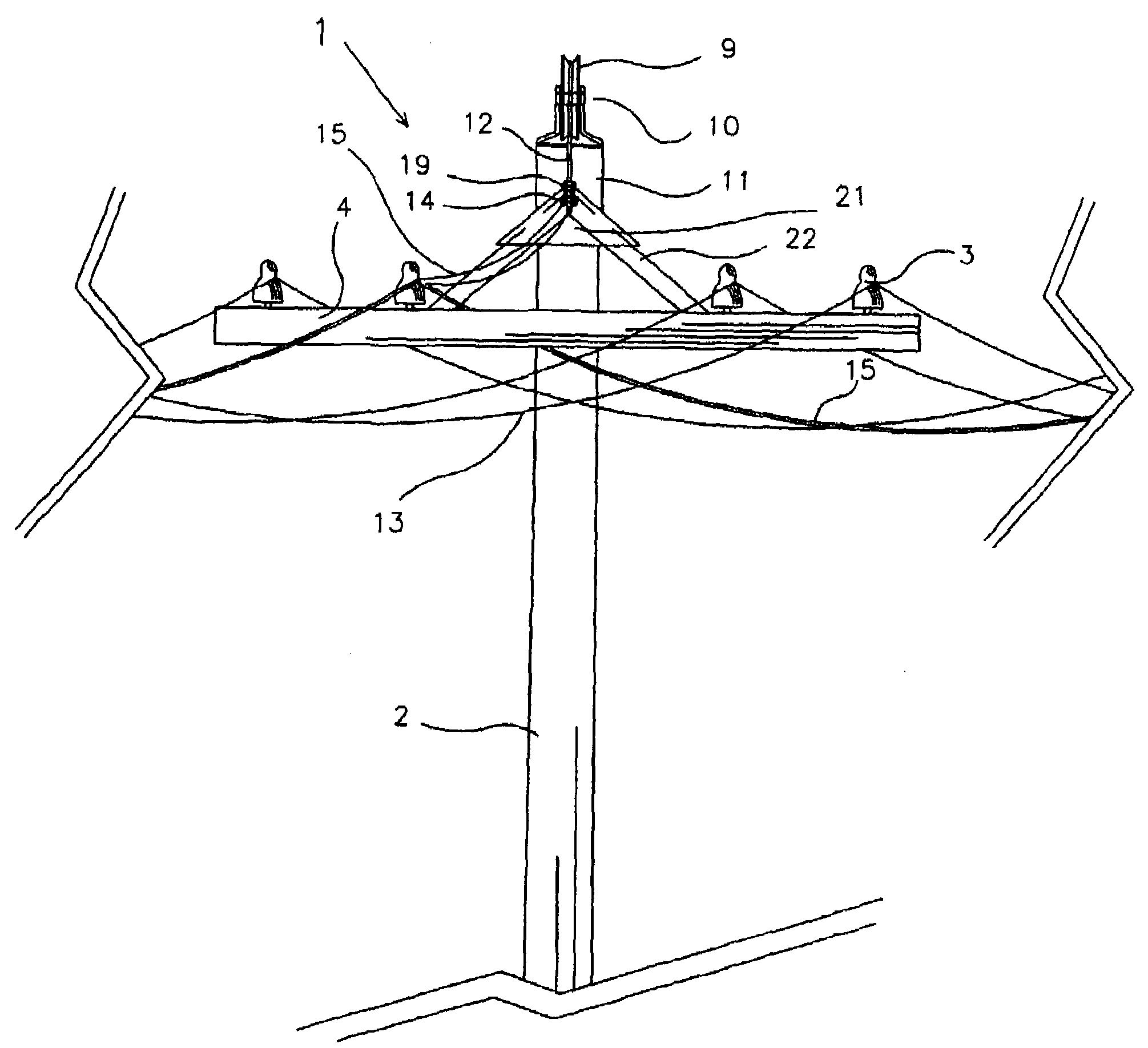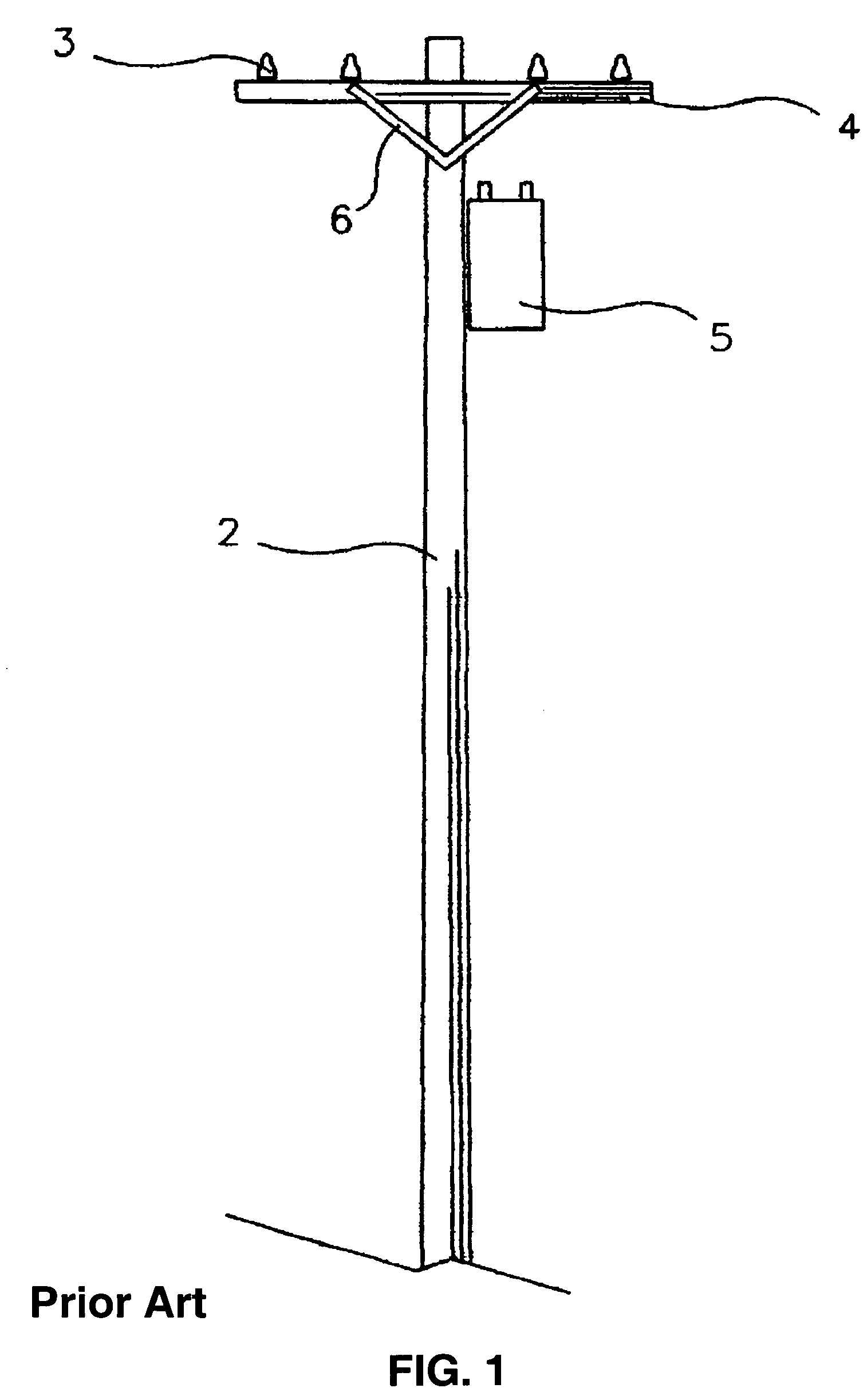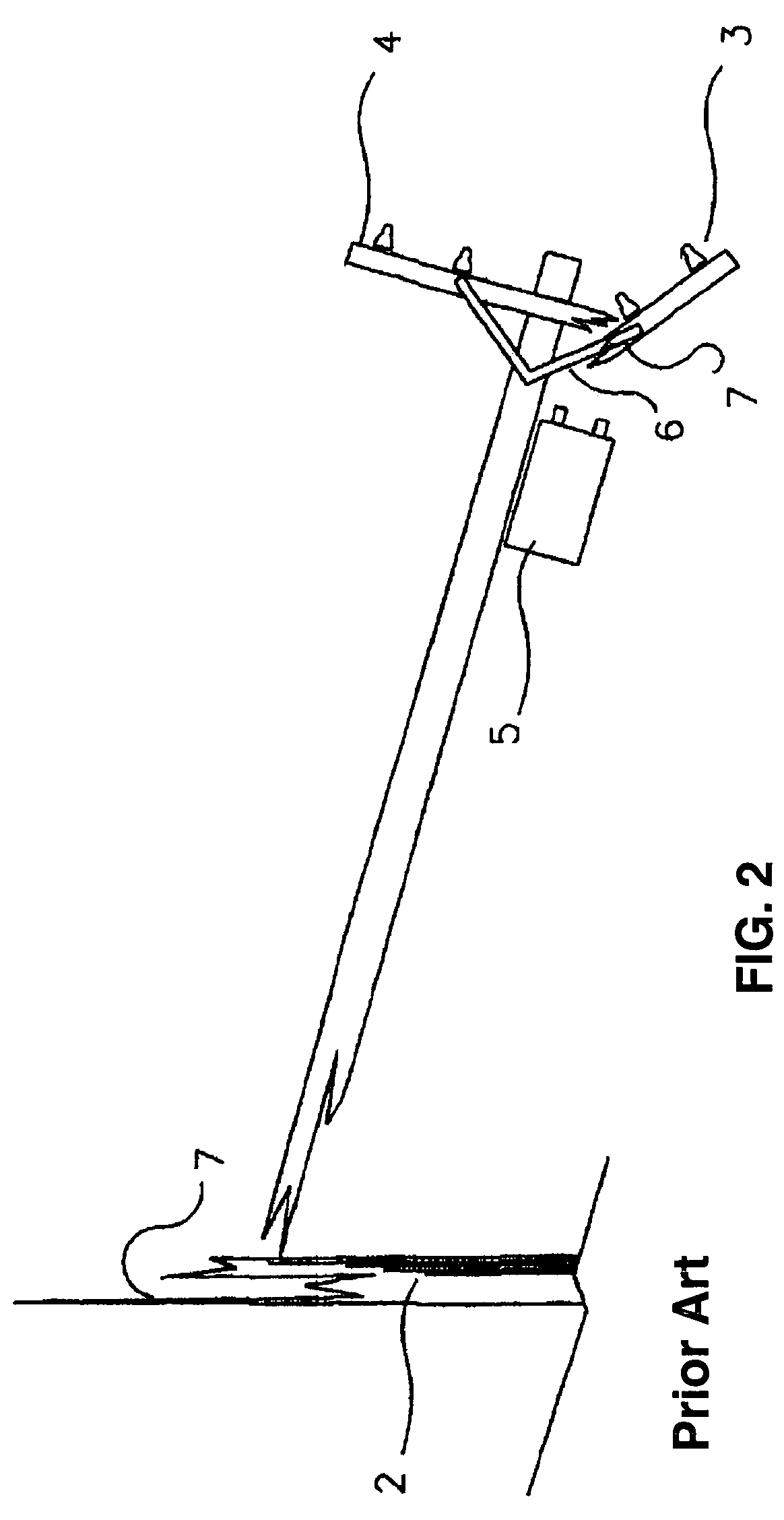Utility pole and tower safety and protection device
a technology for safety protection devices and utility poles, applied in the field of utility poles, can solve the problems of utility line loss, high cost of replacement, and high cost of assembly and maintenance, and achieve the effects of reducing the loss of revenue and replacement costs, avoiding damage, and improving safety features
- Summary
- Abstract
- Description
- Claims
- Application Information
AI Technical Summary
Benefits of technology
Problems solved by technology
Method used
Image
Examples
Embodiment Construction
[0030]Referring now to the drawings, the attached figures illustrate a Utility Pole and Tower Safety and Protection Device 1.
[0031]FIG. 1 and are provided to illustrate utility poles 2 of prior art. The pole 2 includes a cross arm 4, insulators 3, and a brace 6 affixed in typical position below the cross arm 4. A transformer 5 is illustrated in typical mounting position below the cross arm 4. The poles 2 may be wood or metal towers or any suitable structure that can support the device 1. FIG. 2 demonstrates devices of prior art in a broken state 7. As shown in FIG. 1, the fallen poles 2 and cross arms 4 are typically oriented in a position to cause damage 7 to the cross arms 4 as they fall.
[0032]FIG. 3 provides a clear view of a pulley or bearing 9 which channels a cable 12 about a mounting bracket 11. The mounting bracket 11 has a docking yoke 21. A docking brace 22, which provides attachment and stability to cross arm 4 engages the docking yoke 21. The cable 12 is attached to the ...
PUM
 Login to View More
Login to View More Abstract
Description
Claims
Application Information
 Login to View More
Login to View More - R&D
- Intellectual Property
- Life Sciences
- Materials
- Tech Scout
- Unparalleled Data Quality
- Higher Quality Content
- 60% Fewer Hallucinations
Browse by: Latest US Patents, China's latest patents, Technical Efficacy Thesaurus, Application Domain, Technology Topic, Popular Technical Reports.
© 2025 PatSnap. All rights reserved.Legal|Privacy policy|Modern Slavery Act Transparency Statement|Sitemap|About US| Contact US: help@patsnap.com



